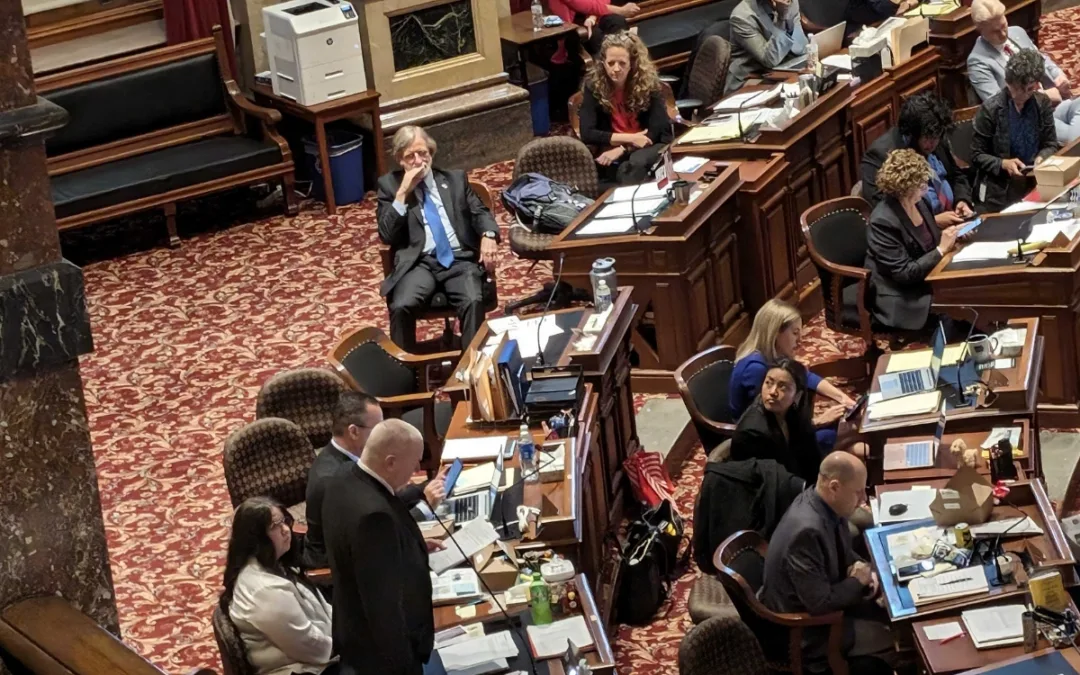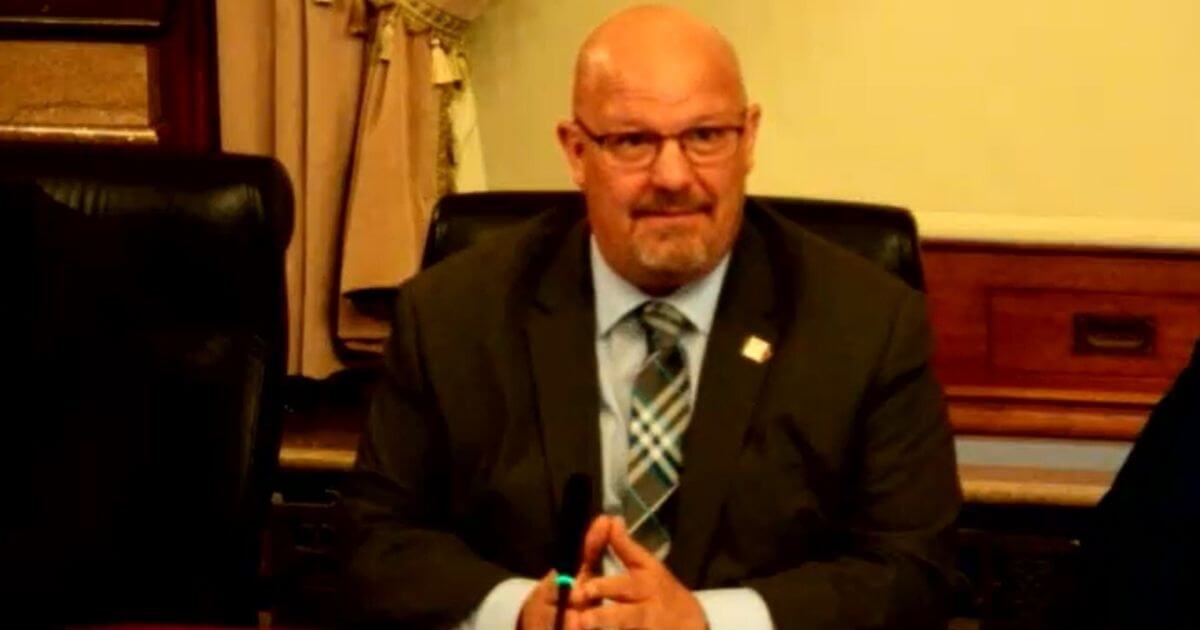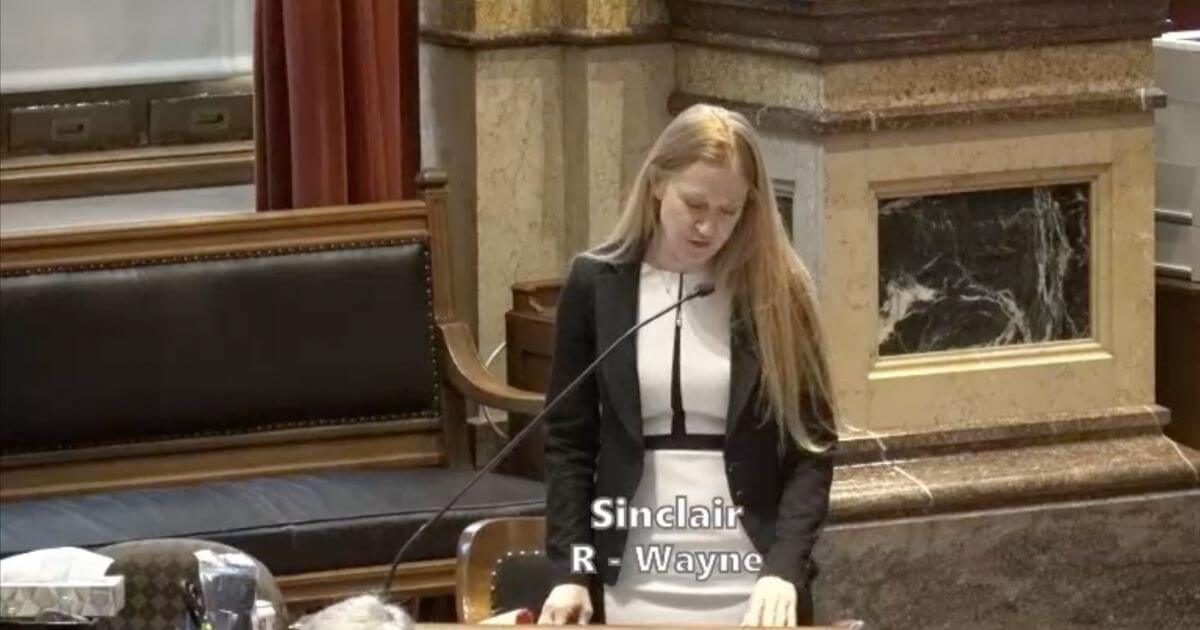
Early voting begins Thursday, and with it, the first ballots will be cast to determine who will represent Iowa in the U.S. Senate for the next six years.
The third installment of Starting Line’s series of comparative pieces centers on how candidates in the Democratic primary have shifted their campaigns amid the coronavirus pandemic and what they believe state and national leaders should do to address the public health crisis.
The first article in the series focused on candidates’ health care policies, which range from expanding the Affordable Care Act to “Medicare for All.” Last week, we asked them to weigh in with what they considered to be their most important issues.
Whoever is successful in the June 2 primary will go on to face GOP Sen. Joni Ernst, who in a recent radio interview said she was hopeful certain parts of the U.S. could begin reopening businesses by the end of April.
Though she has been supportive of Gov. Kim Reynolds’ mitigation efforts over the last six weeks, Ernst hasn’t always taken the threat of COVID-19 seriously. Late in February, at a campaign event in Muscatine, Ernst accused Democratic leaders of trying to “stir up panic” and praised President Donald Trump’s response to the pandemic.
This article explores how the Democrats vying to unseat Ernst have responded to the pandemic and what they believe needs to be done to ensure Americans’ health and future economic prosperity.
[inline-ad id=”1″]
Michael Franken
Franken, a retired Navy admiral, has spent time in Africa working on pandemic response there and assisted with disaster relief in the wake of Hurricane Katrina in New Orleans. As a longtime military leader, Franken already is thinking ahead on how the United States can be better prepared to combat future public health crises.
“We need to get ready for the next step,” Franken said. “That means building labs to detect future outbreaks and developing emergency reserves of PPE and medical equipment.”
As a result of Gov. Kim Reynolds’ “failure to lead,” Franken said, outbreaks of COVID-19 at several meatpacking plants have endangered workers — killing at least two people — and put the food supply chain at risk.
“Iowa is the nation’s breadbasket, and we’re putting our vital workers at risk,” he said. “We need to pause production in those facilities, clean them top to bottom, and figure out how we’re going to keep those workers safe.”
Like his fellow Democrats, Franken believes Reynolds should issue a statewide “stay-at-home” order.
“That order would have brought valuable time to shore up our rural health system, set up testing facilities, and protect vital infrastructure,” he said. “Now, we’re rationing PPE and seeing death tolls rise.”
Mid-March, Starting Line reported on how candidates would adjust to campaigning entirely online and over the phone as public gatherings ceased. Since then, candidates up and down the ballot have been off the trail for over a month, logging countless hours on Zoom calls and Facebook Live.
[inline-ad id=”0″]
Kimberly Graham
Last week, Graham kicked off a week on the virtual campaign trail with the Story County Democrats’ online forum for U.S. Senate candidates and over the next few days came on Facebook to talk about faith, small business reform, and the issues facing black and Latino Iowans.
Graham’s campaign has released two digital ads in the last two weeks, with hopes, Graham said, of putting out a new video every week until Election Day June 2.
“It’s been really an interesting creative challenge to create video content with COVID,” Jason Snell, the campaign’s art director, said recently on Facebook Live.
On Sunday, along with the other four Democrats competing in the primary, Graham will participate in a virtual forum on Zoom, hosted by Page and Montgomery counties and focused on rural issues.
Graham’s thoughts on the country’s response to the pandemic align closely with the core messages of her campaign, particularly when it comes to society’s most vulnerable citizens.
Rather than a one-time payment of $1,200, if she was a senator now, Graham said she would advocate for $2,000 for all adults for at least three months, in addition to sick pay, hazard pay, testing, “massive” PPE funding, and rent and utility relief.
She favors a Medicare for All health care system and believes the pandemic proves even further why health care should not be tied to employment.
“It’s clear, with millions of people out of work now, that health care should never be tied to your job,” Graham said. “If you lose your job, you lose your health care. We can and must do better.”
[inline-ad id=”2″]
Theresa Greenfield
Greenfield was in the midst of her “Hear it from the Heartland” tour around the state when her campaign announced March 16 they were postponing in-person events and instructing staff to work from home.
Since then, the Des Moines businesswoman has held virtual meet-and-greets, town halls and online forums. Beginning in March the campaign set up virtual training sessions for volunteers, talked with followers on Instagram and placed op-eds in newspapers around Iowa to prioritize working families, frontline workers and rural communities in Congress’ coronavirus relief bills.
Today, Greenfield released a second plan focused on coronavirus relief as part of her “Jobs That Need to Get Done” series of policy proposals.
Her first proposal related to the coronavirus, released March 23, focused on how Congress could help everyday Iowans navigate the pandemic by providing free COVID-19 tests and personal protective equipment; expanding sick leave; establishing no-interest loans and disaster relief payments for small businesses; stopping the bailouts of large corporations; increasing transparency in how taxpayer money is spent on stimulus packages; and making it easier to vote by mail.
Greenfield’s latest policy rollout says lawmakers have not done enough to help frontline workers, individual Iowans and small businesses.
“Yes, it’s good Congress got something done,” Greenfield said in a post on Medium. “However, the latest legislation to deal with coronavirus was delayed, and still does not provide nearly enough urgent and direct help for workers, small businesses, and rural hospitals who need it most.”
[inline-ad id=”3″]
Eddie Mauro
On March 11, Mauro became the first candidate in the field to cancel public events, including his “Mississippi River Tour” in Southeast Iowa. His campaign team also began working from home.
The next day, Mauro said the president should declare a national emergency to mobilize the National Guard and other federal resources in order to expand, manufacture and distribute free COVID-19 testing kits.
“Our plan includes a new National Security Council director for pandemic response; establishing a Universal Basic Income for all Americans in times of emergency; rescinding the Trump Administration food stamp cuts; providing states Medicaid spending flexibility in times of national pandemic emergencies; offering a universal, comprehensive paid family leave provision; and lastly, a new frontier public health services program that will provide grants to employ over 50,000 health professionals to serve in dedicated pandemic response roles,” Mauro said in a video message.
Mauro has hosted his “In the Cage” series on Facebook Live, taking questions from individuals while in a baseball batting cage and bringing on guests. He also participates in virtual town halls to discuss issues including faith and politics, mental health care, immigration, climate change and paid family leave.
“Our team was the first to see the writing on the wall,” said Keegan Brown, Mauro’s communications director. “We were the first campaign to really pivot to digital/mobile organizing.”
The Mauro campaign was recognized this week by Mobilize for its paid family leave petition as one of 13 “creative virtual events” held on its platform this month.
[inline-ad id=”4″]
Cal Woods
Woods, a Des Moines realtor and contractor, hosted his first online town hall last week with Union, Adair, Adams, Taylor and Ringgold counties in Southern Iowa.
Of the Democrats running for Senate, he was the least active on social media but has ramped up his presence on Twitter and Facebook in recent weeks. In the coming days he has seven virtual town halls scheduled on Facebook to talk with voters across all regions of the state.
As for state government’s response to the coronavirus pandemic, which has killed at least 83 Iowans, Woods said Reynolds’ actions have been “tepid at best.”
“In a time of crisis a leader needs to err on the side of caution,” Woods said. “Tighter restrictions for a brief time now, while we’re securing more testing supplies and medical equipment, can save lives in the future.”
[inline-ad id=”4″]
By Elizabeth Meyer
Posted 4/21/20
4/22/20: An earlier version of this article incorrectly stated Ernst was not present at a March 12 Senate committee hearing on the coronavirus and small businesses.
Politics

AEAs cutting workers in wake of Republican legislation
Iowa legislators said a new bill cutting money for agencies that help students with disabilities wouldn't affect services. But area education...

He said what? 10 things to know about RFK Jr.
The Kennedy family has long been considered “Democratic royalty.” But Robert F. Kennedy, Jr.—son of Robert F. Kennedy, who was assassinated while...
Local News

No more Kum & Go? New owner Maverik of Utah retiring famous brand
Will Kum & Go have come and gone by next year? One new report claims that's the plan by the store's new owners. The Iowa-based convenience store...

Here’s a recap of the biggest headlines Iowa celebs made In 2023
For these famous Iowans, 2023 was a year of controversy, career highlights, and full-circle moments. Here’s how 2023 went for the following Iowans:...




